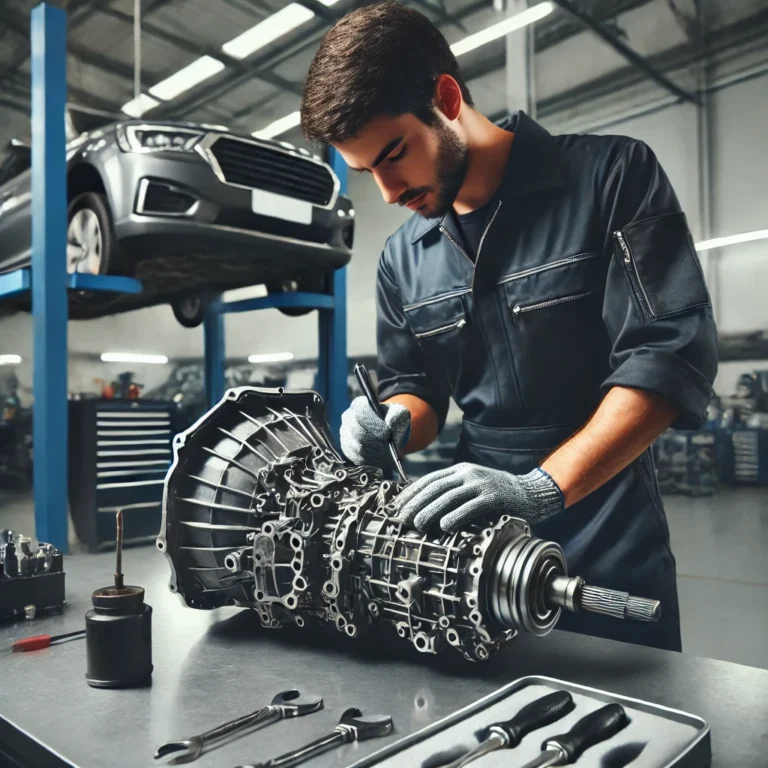
The trucking industry has historically been male-dominated, but over the past few decades, women have steadily been breaking down barriers and making their mark on this essential field. As more women enter the trucking workforce, they’re reshaping the industry, challenging stereotypes, and proving that gender has no bearing on one’s ability to excel in trucking. This change is not only inspiring but also necessary for the growth and evolution of the sector.
Here’s how women are driving change in the trucking industry and why their inclusion matters.
Overcoming Challenges in a Male-Dominated Industry
For many years, trucking has been considered a male-driven profession due to the physically demanding nature of the work, long hours, and cultural perceptions. Women have historically faced numerous challenges, including gender bias, workplace safety concerns, and limited support.
Common Challenges Women Face:
- Stereotypes and Bias: Women in trucking often encounter preconceived notions about their abilities. Overcoming these biases requires resilience and a commitment to excellence.
- Safety Concerns: Long-haul driving often involves overnight stays and travel to unfamiliar areas, which can pose safety challenges, especially for female drivers.
- Work-Life Balance: Balancing family responsibilities with the demands of trucking can be a significant hurdle for many women.
Despite these challenges, women have shown incredible perseverance and strength, reshaping perceptions and proving they can handle the demands of the job just as well as men.
Shattering Stereotypes Through Competence
One of the most effective ways women are breaking down barriers in trucking is by excelling in their roles. Female drivers consistently demonstrate professionalism, safety, and reliability on the road. Their success challenges stereotypes and opens the door for more women to follow.
How Women Are Changing Perceptions:
- Proving Competency: Female drivers often outperform their male counterparts in key metrics such as safety records and compliance with regulations.
- Leadership Roles: More women are stepping into leadership and management roles within the trucking industry, showing they can lead with confidence and skill.
- Mentorship and Advocacy: Many women in trucking advocate for the next generation of drivers by mentoring, supporting, and creating inclusive environments.
Organizations and training programs, such as Eldt online, have recognized the importance of fostering inclusivity and providing resources to help women thrive in this industry.
The Benefits of Diversity in Trucking
Increasing diversity in the trucking industry isn’t just a matter of fairness—it’s also good for business. Companies that prioritize inclusivity benefit from a broader talent pool, diverse perspectives, and innovative problem-solving. Bringing more women into the trucking workforce contributes to a more resilient and adaptable industry.
Key Benefits of Gender Diversity:
- Improved Safety: Studies have shown that women are statistically less likely to engage in risky driving behavior, leading to safer roads and fewer accidents.
- New Perspectives: Women bring fresh perspectives to problem-solving, customer service, and industry challenges, fostering innovation.
- Addressing the Driver Shortage: The trucking industry faces a driver shortage, and recruiting more women helps fill this gap while bringing diverse talent into the fold.
Support Systems and Resources for Women in Trucking
To support women entering and succeeding in the trucking industry, numerous organizations and resources have emerged to offer mentorship, advocacy, and educational opportunities. Programs designed to meet the unique needs of women in trucking can provide critical support and foster a sense of community.
Examples of Support Resources:
- Women In Trucking Association (WIT): WIT offers a platform for female drivers to connect, share experiences, and advocate for gender equality in the industry.
- Mentorship Programs: Female trucking professionals mentor new drivers, offering guidance, support, and practical advice for navigating the industry.
- Educational Programs: Training options equip women with the skills and qualifications needed to thrive in their careers while meeting regulatory requirements.
Promoting a Culture of Inclusivity
The trucking industry is gradually shifting toward a culture of inclusivity and equality. Companies are increasingly recognizing the value of diversity and implementing policies to support women, including anti-harassment initiatives, equal pay, and flexible scheduling. By creating welcoming and inclusive workplaces, the industry can attract and retain more female talent.
Steps Toward Inclusivity:
- Zero-Tolerance Policies: Enforcing strict policies against harassment ensures a safe and respectful work environment for all employees.
- Flexible Work Options: Offering flexible schedules allows women to balance family responsibilities while maintaining a successful career.
- Diversity Training: Implementing diversity and sensitivity training helps create a more inclusive culture within trucking organizations.
Women Leading the Way
Women in trucking are not just breaking barriers; they’re paving the way for future generations. As more women take on leadership roles and become advocates for change, they inspire others to pursue careers in the industry. Female drivers are demonstrating that trucking is a viable and rewarding career path for anyone willing to put in the hard work.
Inspirational Stories: The stories of trailblazing women in trucking highlight the resilience, dedication, and passion that women bring to the industry. By sharing their experiences, they encourage others to pursue their dreams, no matter the obstacles.
Conclusion: Driving Change Together
Women in trucking are transforming the industry, bringing diversity, innovation, and resilience to the road. By overcoming challenges, shattering stereotypes, and advocating for change, they’re making trucking a more inclusive and dynamic profession. With the support of programs and organizations dedicated to gender equality, women are not just driving trucks—they’re driving change for a better future in trucking.






